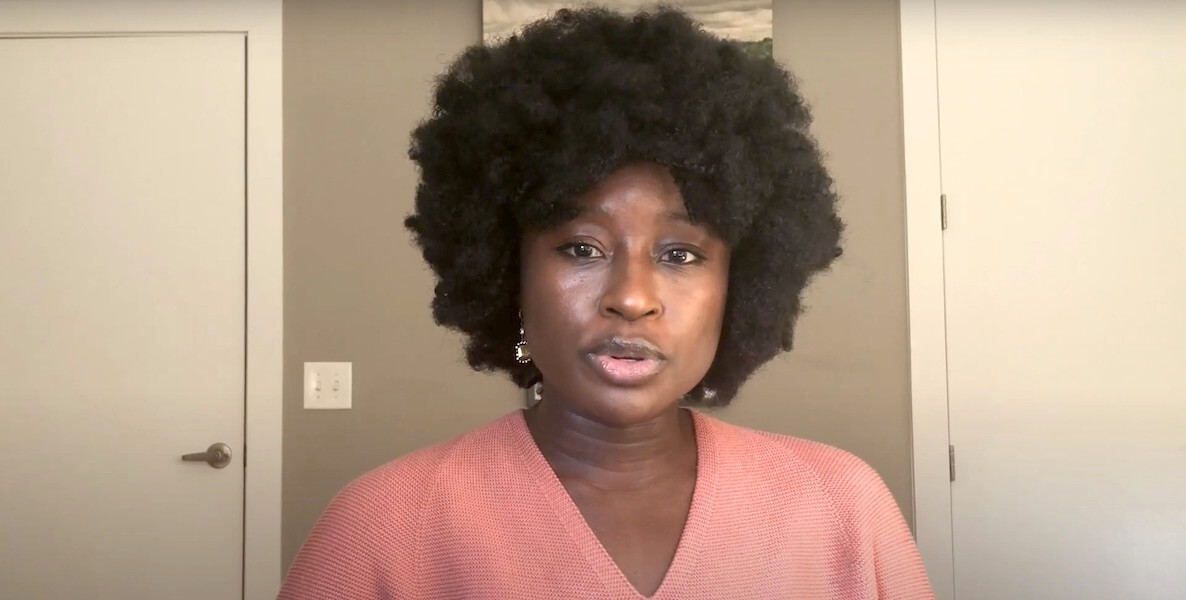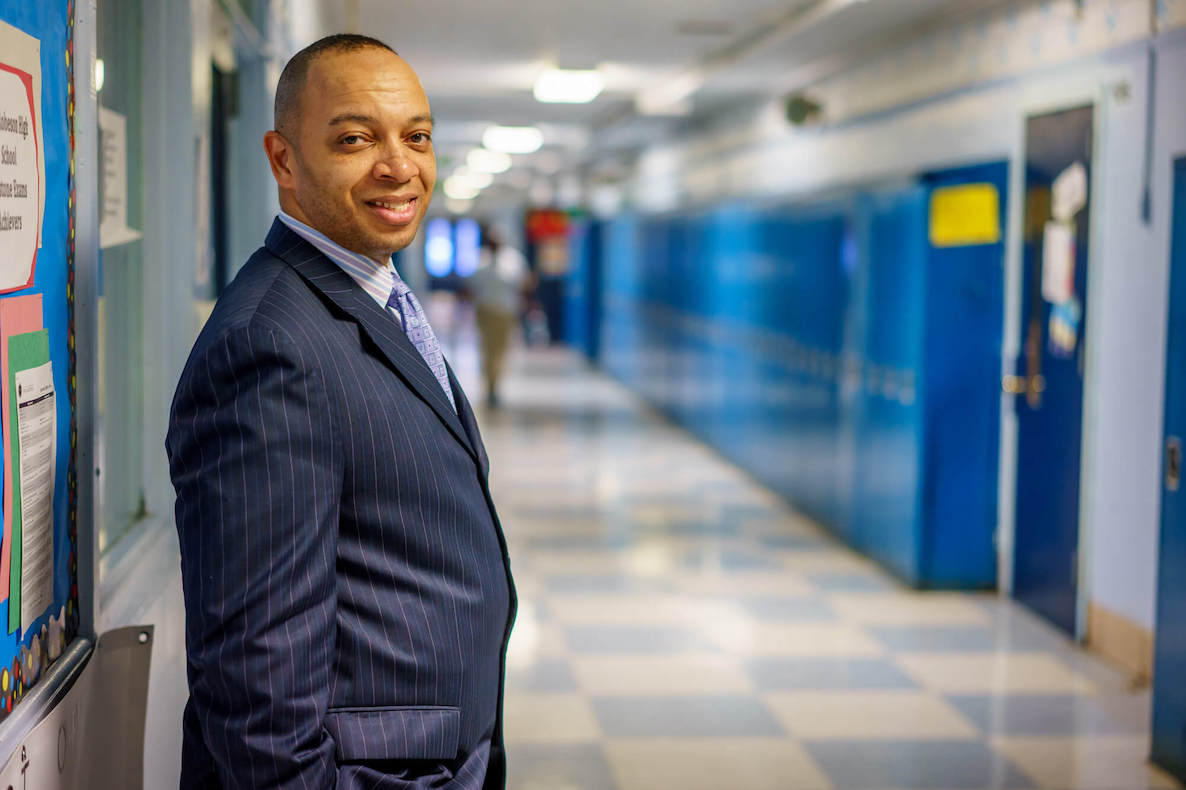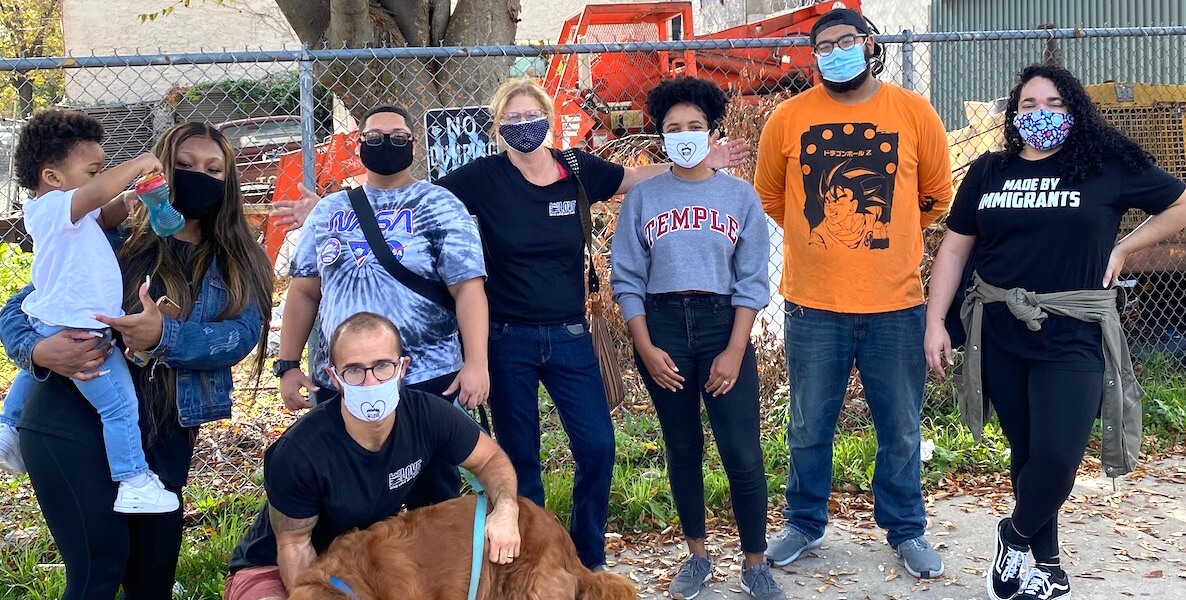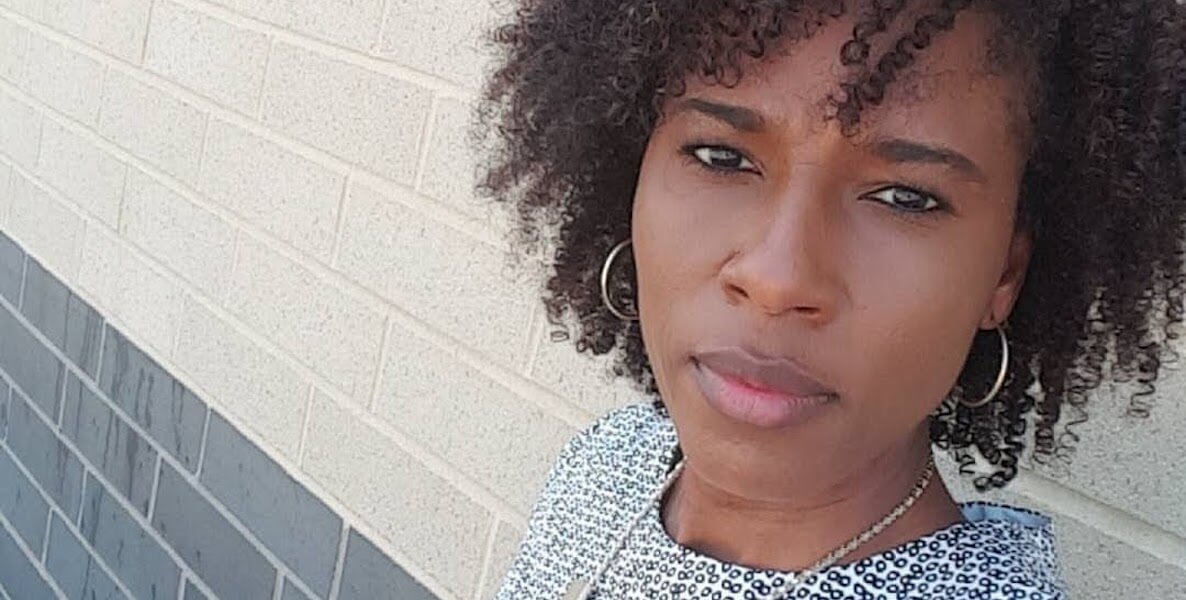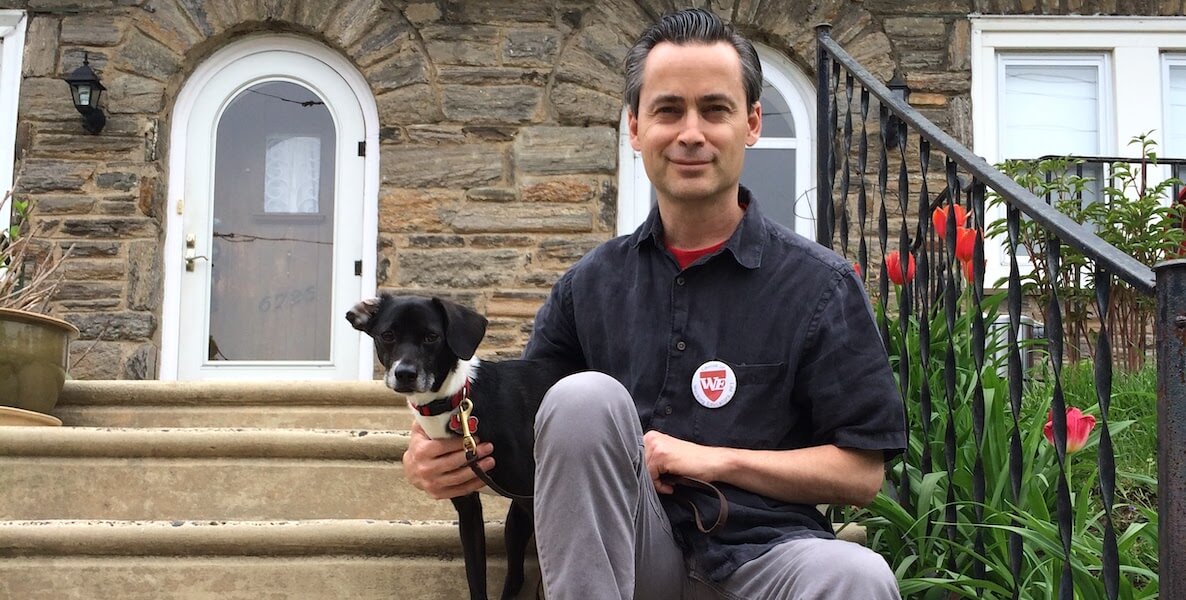Thomas Quinn first pulled an election lever in 1988, when he was an 18-year-old freshman at Temple University — the first time he was eligible to vote. It was not a particularly memorable moment for him, and it was not a particularly successful one either: A registered Democrat, Quinn cast his vote for Jesse Jackson, who went on to lose the primary.
But the voting stuck. And now Quinn, a teacher in Central High School’s social studies department, has become a tireless leader in the citywide effort to instill the importance of voting in a new generation of 18-year-olds.
Since 2015 Quinn has been organizing Philly Youth Vote, through the Caucus of Working Educators — an activist coalition within the Philadelphia Federation of Teachers—to lead a non-partisan effort to register every eligible high school senior in the city. So far, the group has recruited teachers in 45 district schools who have volunteered to get registration information and forms into the hands of any of the 8,000 seniors who turn 18 each year.
Over the last five years, they’ve partnered with at least 20 organizations that work on aspects of youth voter engagement, most notably SEAMAAC, When Philly Votes, Vote That Jawn, and Committee of Seventy.
“Voting is something students are aware that they should do,” Quinn says. “But I go to the polls, and it’s almost all older people, with very few young people. What is it that’s stopping them? As teachers, we’re in a perfect position to reach kids when they’re learning about government, about to go to college or to work, and are first eligible to vote.”
Getting kids to vote
Among other achievements, Quinn has authored a step-by-step guide for teachers, which includes instructions on how to sort students by birthdate to find those to target; how to download paper registration forms; and how to start a classroom conversation around voting. He will also send to any teacher a stack of registration forms through the School District’s internal postal service. Quinn’s efforts are aimed at district high schools, but he hopes to raise interest among charters and other schools in the city, as well.
“The process is not super-complicated, but it’s just complicated enough that we’re trying to make it as simple as possible for teachers,” Quinn says.
Last spring, Philly Youth Vote launched a fundraiser with SEAMAAC to provide voter registration tablets to high schools, and received over $4,000 in just a few days. “Then the pandemic hit and we had to totally switch gears and go with online registration,” Quinn says.
Again, SEAMAAC was instrumental in that they, along with VietLead, provided dedicated Rock the Vote Online Voter Registration links for every high school in the district. Students were able to follow up with their registered peers with GOTV text- and phone-banking right before the election.
“As teachers, we’re in a perfect position to reach kids when they’re learning about government, about to go to college or to work, and are first eligible to vote.”
(And the pandemic didn’t stop students who were part of When Philly Votes, the local When We All Vote chapter, from getting out in the community with some of those same tablets to register voters all summer and fall: They did dozens of drives at supermarkets, libraries, schools, and marches, and got news coverage ranging from 60 Minutes, to The New York Times, and even media in Germany.)
Involving kids in the process
Under Quinn’s leadership, Philly Youth Vote and other partners also helped to recruit 17-year-olds into poll worker jobs on Election Day, with the help of Donna Fitzpatrick in the Commissioners’ Office, who worked weekends processing hundreds of paper application forms. (Quinn knows this firsthand, as Fitzpatrick was texting him for help reading students’ handwriting. “She’s a hero!” he says.)
![]() They also partnered with Committee of Seventy to line up candidates to stream Zoom interviews in Philly classrooms. “This is a really important and ongoing part of our work, because one of the main reasons that turnout is low among youth is that the parties and candidates don’t engage them…because they have low turnout, and the cycle continues. We need candidates to hear young people speak about their concerns and ask them questions. Politicians need to walk into Philly public schools to see and hear firsthand from the amazing students who struggle and persevere in an underfunded and racially disparate educational system,” Quinn says.
They also partnered with Committee of Seventy to line up candidates to stream Zoom interviews in Philly classrooms. “This is a really important and ongoing part of our work, because one of the main reasons that turnout is low among youth is that the parties and candidates don’t engage them…because they have low turnout, and the cycle continues. We need candidates to hear young people speak about their concerns and ask them questions. Politicians need to walk into Philly public schools to see and hear firsthand from the amazing students who struggle and persevere in an underfunded and racially disparate educational system,” Quinn says.
They worked with Vote That Jawn, led by Lorene Cary, who channeled the creative energy of its digital interns into scores of poems, blog posts, Tok Toks, Instas, Spiral Q mailbox and polling booth puppets, raps, and dance routines.
Quinn says that he can’t stress enough that while older folks provided some structure, funding, and experience, “it was the high school and college students in all of these organizations that were the driving energy and brilliance behind a successful campaign to turnout the youth vote,” he says. In fact the latest report from the Commissioners Office shows that the turnout for 18-year-olds, at 70 percent, was above the average for the whole population, which was 66 percent.
Now that the election is over, Philly Youth Vote is relaunching its campaign to ask the Philadelphia Board of Education to pass a permanent Voter Registration and Engagement Policy.
They’re also planning Philly Youth RUN!, an effort to encourage 18-year-olds to run for Election Board seats in 2021. And they’ve started building the PA Youth Vote Coalition in hopes of replicating some of their successes on a larger scale. “Right now it’s just a Facebook Group, but we’re hoping to add members and increase engagement so we can share strategies statewide, and see where it takes us,” Quinn says.
“Part of what I teach is that politics isn’t just learning the nuts and bolts of the Constitution,” Quinn says. “It’s to make it work for you and your community and your interests. Civic engagement, and citizenship at a very basic level, is incredibly important.”
![]() Growing up in Lancaster County, as Quinn remembers it, his parents voted “like how they went to church on the holidays” — mostly during Presidential races. But they didn’t talk about it much. Instead, Quinn first became politicized as a teenager through 80s punk rock, music that — as he puts it — was not always articulate, but was always compelling.
Growing up in Lancaster County, as Quinn remembers it, his parents voted “like how they went to church on the holidays” — mostly during Presidential races. But they didn’t talk about it much. Instead, Quinn first became politicized as a teenager through 80s punk rock, music that — as he puts it — was not always articulate, but was always compelling.
“Voting needs to be part of the curriculum in every school. I want students to know that all the things they care about are affected by the political system in their lives,” he says. “And voting is a huge way to impact the power players, and people who are making the decisions.”



